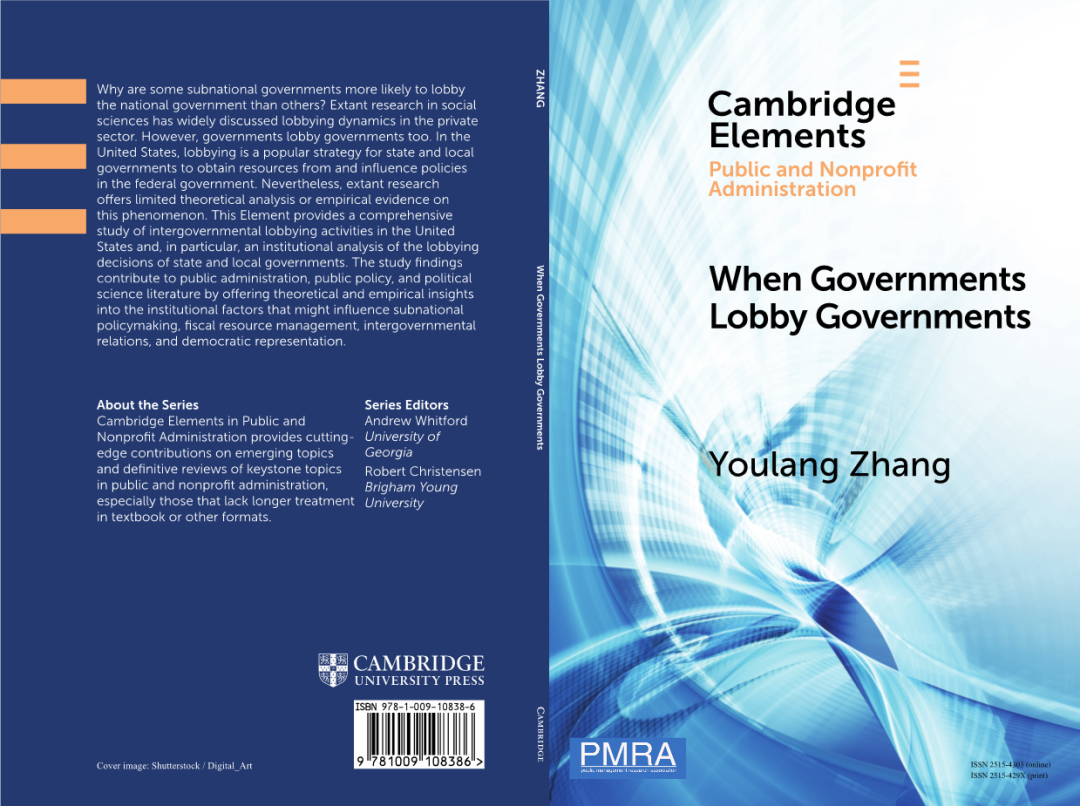A new book called When Governments Lobby Governments, written by Zhang Youlang, professor of the School of Public Administration and Policy, Renmin University of China (RUC) was published by Cambridge University Press recently.

Introduction
Why are some subnational governments more likely to lobby the national government than others? Extant research in social sciences has widely discussed lobbying dynamics in the private sector. However, governments lobby governments too. In the United States, lobbying is a popular strategy for state and local governments to obtain resources from and influence policies in the federal government. Nevertheless, extant research offers limited theoretical analysis or empirical evidence on this phenomenon. This Element provides a comprehensive study of intergovernmental lobbying activities in the United States and, in particular, an institutional analysis of the lobbying decisions of state and local governments. The study findings contribute to public administration, public policy, and political science literature by offering theoretical and empirical insights into the institutional factors that might influence subnational policymaking, fiscal resource management, intergovernmental relations, and democratic representation.
Catalog
Section 1 Introduction
Intergovernmental Lobbying in the United States
Qualitative Observations
Overview of Sections
Section 2 Executive Institutions and Lobbying Activities of City Governments
Theoretical Analysis
Evidence
Summary
Section 3 Legislative Professionalism and State Lobbying Activities
Theoretical Analysis
Evidence
Summary
Section 4 Bottom-Up Federalism of Lobbying Investment
Theoretical Analysis
Evidence
Summary
Section 5. CONCLUSION
Highlights of the Main Findings
Theoretical and Practical Implications
Concluding Thoughts on a Future Research Agenda


